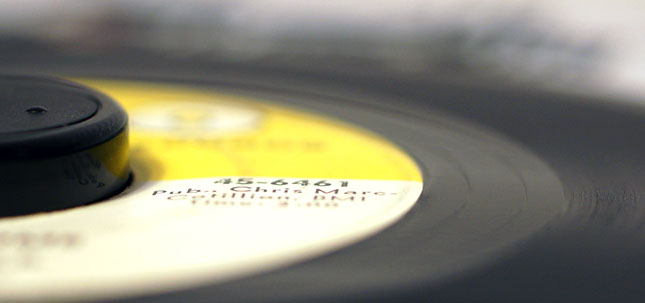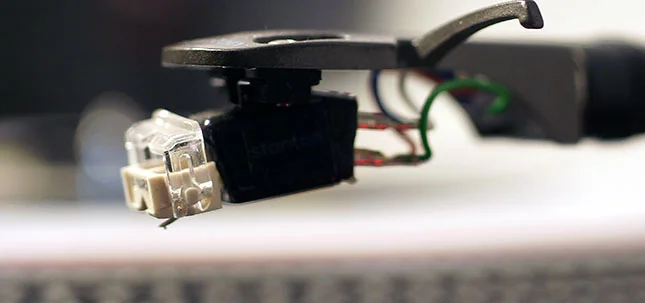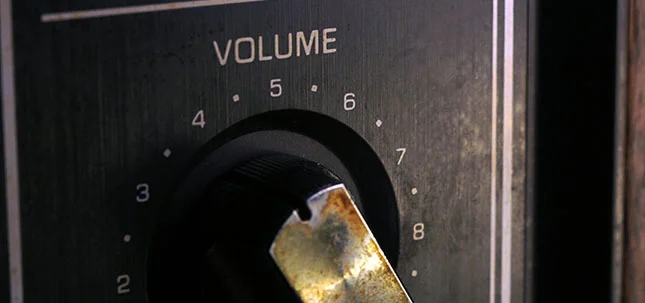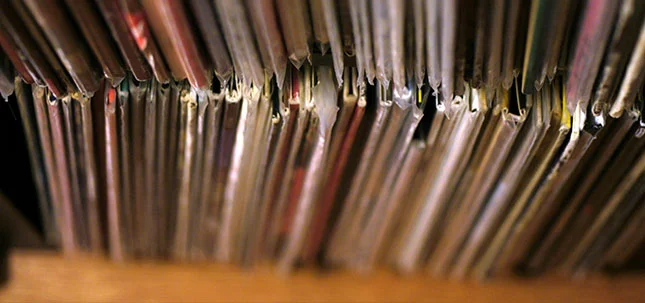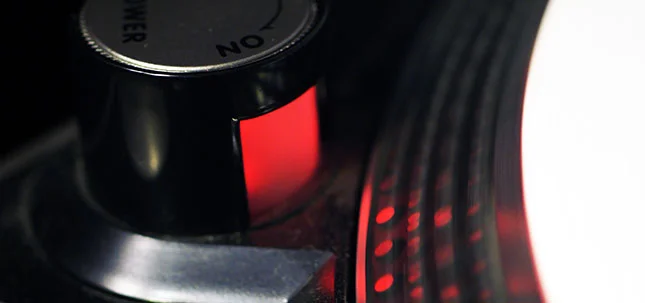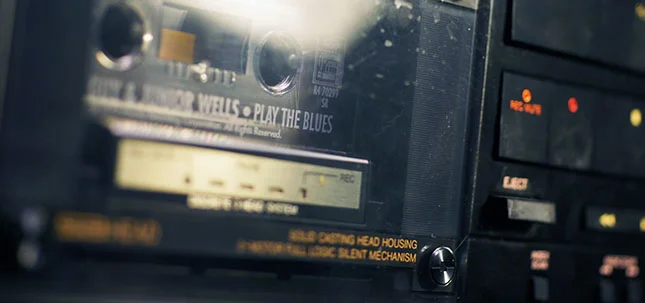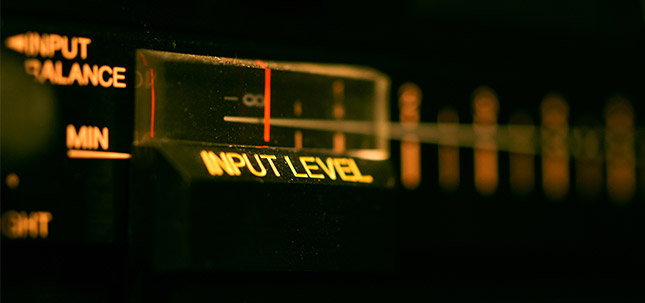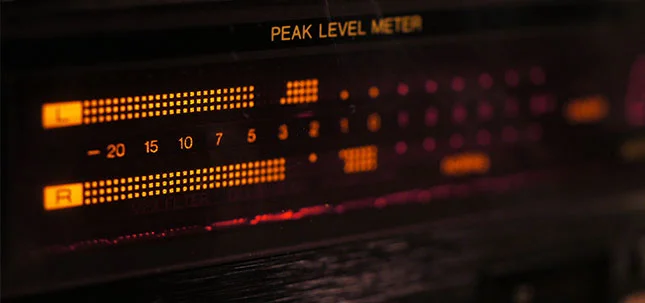Wildflowers & Woeful Hours: Reflections on Being a Fan
I have been wanting to write about what it means to be a fan for a while, because I keep experiencing moments that remind me of the importance of being a fan. Being a fan is one of the coolest things you can do in my opinion, and it has bought a great richness to my life. Most often, it is richness in a good way: seeing your favorite artist at a show, witnessing someone else’s joy at seeing their favorite artist, talking about your favorite things, and meeting people who care. However, with all of the glorious richness comes the richness of pain and loss: no matter how good being a fan feels, like all things it cannot last. That’s the tenuous agreement you make with yourself and the world once you find that being a fan matters: that it can all change in an instant, and it might never be this good again.
When news about Tom Petty being in cardiac arrest broke yesterday, I reflexively texted my friend Valerie. “TOM PETTY” is all I had to say, all caps fired off instantly like a beacon, for her to know to slam onto Twitter or search Google at the speed of light to figure out what is going on.
Val lives in Philadelphia. We met nearly a decade ago online, when she was posting Microsoft Paint drawings of Tom Petty and the rest of the Traveling Wilburys on Tumblr with our friends Sarah, Emily, Emily, Heather, Daria, Serene, Wil, Casey, and more who I only know by their online handles-- a whole gang of teenagers who were fully devoted to everything about their respective classical rock heroes.
Sarah, Casey, one of the Emilys and I were full-on Springsteen superfans. Val liked Springsteen, but Tom Petty was her everything. She and Sarah crossed over in that respect, and there were those among us who loved The Who, or Fleetwood Mac. The chain of teens who couldn’t get enough of music grew and strengthened, and we turned to our respective experts among ourselves when we needed an opinion on something a band did.
We all made inside jokes, discussed the intricacies of our heroes’ careers (Sarah especially was an expert on “Awkward 90s Bruce,” an examination of his cheesiest period in both sound and fashion), shared bootlegs, and most of all, experienced the intoxicating freedom of being ourselves with people who understood.
I’ve been a super fan for as long as I can remember, called “Cher Girl” in middle school for my obsessive devotion to the one-named icon. I later dove headfirst into the deep healing waters of Springsteen fandom, which is where I was in 2009 when I joined Tumblr. Being a fan has always been a part of me and my personality, and how I relate to the world. I learned Photoshop from making forum banners, learned about international shipping from eBay sellers who had a record I wanted, and learned how to write basic HTML markup from fan sites, forums and blogs-- plus met people all over the world who cared that I cared.
The deep friendships I formed with people on the basis of caring about music helped usher me into adulthood with a sense that staying true to yourself was the purest freedom available. Being who you want to be, liking what you like, and not hiding it has a payoff unlike any other, and it is fun and cool to be a fan because of it.
I’ve surrounded myself with fans going forward-- I recently found out that one of my close friends since moving to Nashville once ran a top Gwen Stefani fan site, for example. I am drawn to people who care about the ritual of a live show, collecting bootlegs, wanting to buy a box set even though you have everything in it already, and wanting to talk about the mid-career flop album that has a great track on side two. I joined a whole volunteer radio station full of people who care deeply about these things, and created a platform to share that passion with their community. I’m even marrying one of those fans from Tumblr later this month. Our fanaticism for Bruce Springsteen brought us together and gave us a platform to start with, but it was the transparency of already being our truest and nerdiest selves around each other where love blossomed.
While part of being a fan is looking forward to the next show, there’s always the dark fantasy of what will happen when your favorite person dies. The lore of artists who have already passed, especially in the classic rock world, was a part of the rich tapestry of Tumblr fandom. The users who were fans of The Who would post a photo and an elegy every September 7 to mark Keith Moon’s passing, talking about him like a close friend. This might seem weird to outsiders-- but fans get it. It’s a part of the fandom calendar. I celebrate Cher’s birthday every year, because I’m glad she’s here for another year.
What will happen when your favorite artist dies, though? You’ll probably take a day off work, because you’ll be an adult in the future when it happens, and you couldn’t bear to deal with responsibilities when something as earth shattering as Tom Petty passing happens. As you’re posting in the student lounge at your college, this all feels like a far off hypothetical. But as time marches on, we’re all adults now: some of us getting married, all of us past school, and working those jobs that don’t have a clause for celebrity death days off in the contract. Our parents get older, our favorite artists get older. Life has changed, which we know, but our connections to the music have only deepened as we realize they mean beyond teenage idolatry. (Not that there’s anything wrong with teenage idolatry, but that’s a whole other article on fans.)
I kind of regret breaking the news to Val in such a blunt way, looking back. But it was an immediate association: Tom Petty news = where is Val? The good news is, Val did get to go home from work. We texted, we Snapchatted, staying connected even though we haven’t seen each other in person in years. My little sister even asked to see how she was doing because Julie remembered how much Val loved Tom Petty.
Val tweeted, “he was my whole world for so much of my life.” Obviously she knew Tom Petty would someday die. And, being much younger than him, she would probably witness it. That’s not the point. The rush of loving someone’s personality, music, what they put into the world for their fans, requires an innocence predicated on forgetting that it is all a product, and forgetting that you’re one of so many fans who is spoken to by that music-- it is not a unique connection. Ultimately, that money you spent on the box set you didn’t really need ended up somewhere.
However, fans find the power in that community of people. They find freedom in the expression of loving words, music, and people who make you feel like your best you. The way Tom Petty’s music held Val’s hand into adulthood, Bruce Springsteen’s held mine. I feel her tweet deep down, that no one ever wants the day to come where they see their titan fall into inevitable morality. But it happens. And when it does, other fans are there for you.
What is not supposed to happen, however, is being killed for being a fan. As the world suffered Tom Petty’s loss yesterday, they were also reeling from the loss of 59 fans from a machine gun blasted into a crowd of country music fans by a hateful white man-- a terrorist. Yes, Facebook friends you haven’t deleted yet will remind you that more people die abroad at the hands of our military each day, or that gun laws wouldn’t have changed this, depending what side they come from, but like Tom Petty being obviously mortal, this is not the point.
The contract of freedom, liberation, and joy that fans who bought a ticket to that festival thought they had entered was destroyed. Lives were lost, innocence ripped away, and none of the survivors will ever attend a concert and feel safe again. The joy of getting a ticket to see your favorite artist doesn’t hold the same magic because the violence of the world has entered the once safe freedom of self-expression as a fan. Much has been written about the shock of this, despite it not being the first time something like this has happened (see: Eagles of Death Metal in 2015, Ariana Grande earlier this year, and so on), and it certainly is shocking.
The fact that there is an actual death toll from being a fan would be too much to handle for those Tumblr teens years ago. It became dangerous to be a fan, in the same way it is dangerous to go into a subway station, or attend certain religious services. The world was dangerous back then, too, but the solace of fandom was free and safe.
I suppose I, like all of the social media posts you’ll see, don’t really have a conclusion. I’m still grappling with it. But while you can prepare for some inevitable pain as a fan, this wasn’t in the cards. Terrorism has reshaped the world, and now reshaped one of the purest corners of escapism. Music, concerts, and artists have never existed in a vacuum-- in fact, they help fans in how they relate to the wider world. But the communities of fans, be that a reblog chain on a Tumblr picspam or the entire crowd at Madison Square Garden on a given night, were supposed to be safe to usher each other through the toughest of times: everything from walking into high school each morning, to the loss of a parent, to Tom Petty dying. The day after an event like Vegas, the joyful naivete of indulging in being a fan feels hollow. When the richness is placed next to that hollowness, it’s hard for it not to be overtaken or fall flat, or for the joy to feel ostentatious. But don’t be afraid to be a fan. In the words of Tom Petty, “you belong somewhere you feel free.”



